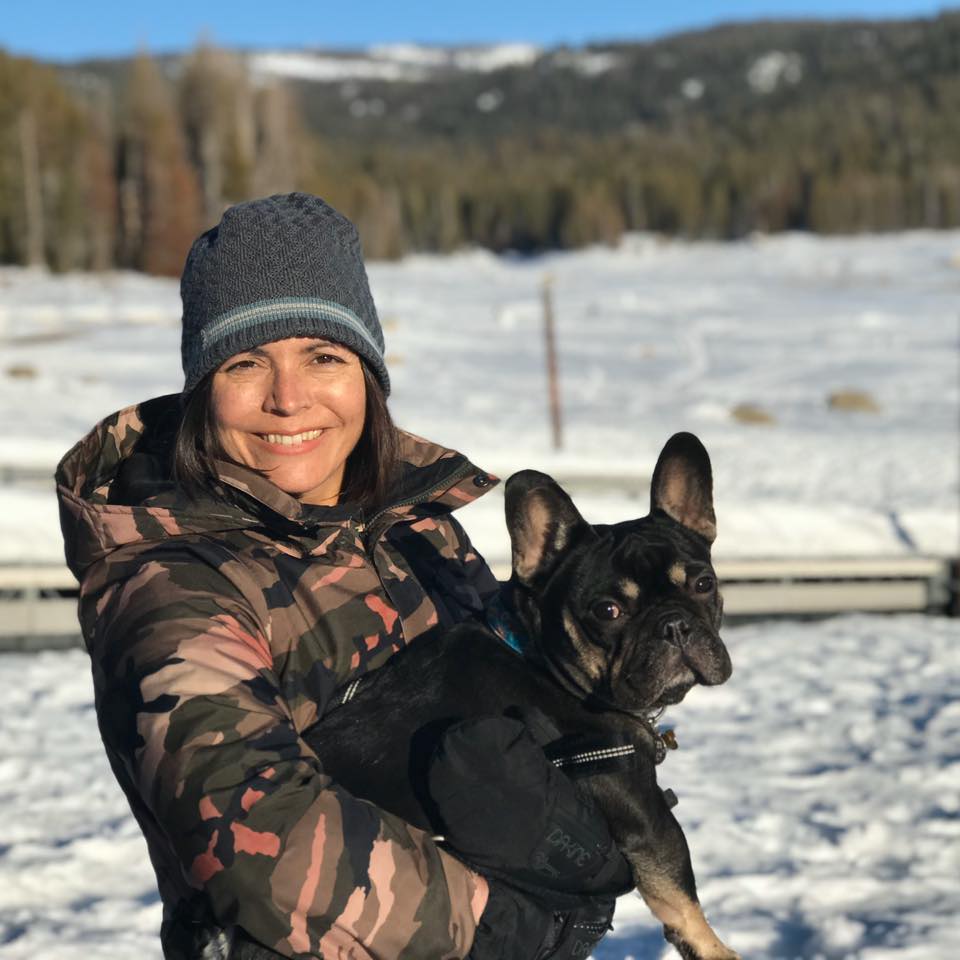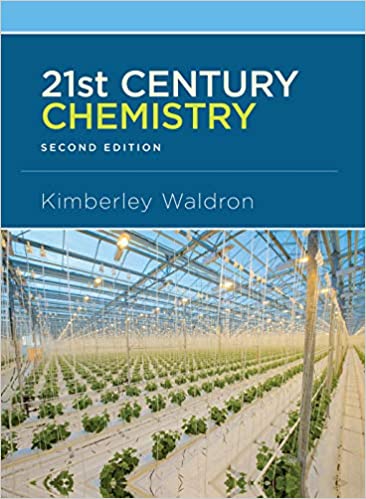CHEM 100 - Chemistry and Society - Rebecca Eikey
| Course: | Chemistry and Society |
|---|---|
| Professor: | Rebecca Eikey |
| Email: | rebecca.eikey@canyons.edu |
| Format: |
|
| Course Length: |
|
Introduction

Dear Student,
Welcome to CHEM 100 – Chemistry & Society! This class is an introduction to chemistry for non-science majors. It covers basic concepts in chemistry, and how to understand chemistry’s role in everyday life. It serves to fulfill a General Education requirement for the non-science major but more than that you will learn chemistry through stories that have meaning to you.
I would like to introduce myself to you. I am Rebecca Eikey (pronounced eye-key), and your instructor for this online course. I have been teaching my favorite subject, chemistry, at College of the Canyons for over 15 years. I love how science leads to a new understanding and appreciation of the natural world around us and our place in that world. In my spare time, I like to hike, to read books (both fiction and nonfiction), and to travel. My favorite books are I Know Why the Caged Bird Sings by Maya Angelou, and Exhalation: Stories by Ted Chiang. This is a picture of me with my dog, Turbo, from winter 2020 taken in the Sierra Nevada mountains.
Course Description
Have you ever looked at a label on your shampoo bottle or on a package of candy and tried to figure out what it means? Why is a vegetarian diet better for the planet? What is vaping and is it dangerous for me? What are plastics, why do we use them and why are they harmful to the environment? Being able to understand the science behind medicine, nutrition, and policy decisions will enable you to make informed decisions. Being able to read graphs will allow you to decipher the relationships presented. Using the scientific method and developing scientific literacy developed in this course will help you answer these questions.
Student Learning Outcomes
-
Articulate the role of chemistry in the everyday world.
-
Analyze the benefits and limitations of scientific analyses by interpreting chemical data.
What to Expect in this Course
Many students register for distance-learning courses believing that it will require less time. Although the length of the course is only five weeks the same amount of material is covered as in the normal 16-week semester. This is a fast paced, intensive, 5-week course. Each week of course material is equal to three weeks of material covered during a 16-week semester. While you will spend fewer weeks in the classroom discovering the information, and the responsibility of scheduling learning into your busy lives, will be on your shoulders. Many distance-learning courses are more of a time commitment than a traditional lecture course, and I praise you for being up to the challenge.
There are several things you should be aware of before we begin:
This is a short-term, intensive section, 100% online, 5 weeks There are NO face-to-face meetings for this course.
This course is divided into Learning Units. Each Learning Unit is approximately one week in length. Generally, for each Learning Unit you can expect to complete the following coursework:
- Read two to three (2-3) chapters from your textbook
- Review PowerPoint lectures online
- Answer homework online
- Participate in one to two (1-2) online discussions
- Take an online Unit Quiz
I will make our course available through Canvas one week prior to the start of classes. Read the syllabus carefully. There will be a project and presentation at the end of the session.
If you are not sure an online class is right for you checkout the Quest for Online Success self-paced class offered through the Online Education program (https://www.canyons.edu/academics/onlineeducation/online/index.php). The Quest for Online Success self-paced class will point out technical areas needing improvement, and where to find help. The site also allows you to determine your learning strengths and weakness, and how to schedule your study time.
If you have any questions, please do not hesitate to email me. See you soon.
Types of Assessments
Online homework, online quizzes, discussions and final project/presentation.
Textbook Information
We will use SaplingPlus for online homework and online quizzes.
SaplingPlus for 21st Century Chemistry (Single-Term Access), Kimberley Waldron, 2019, Second Edition. Cost approx. $75 (ISBN 9781319256562).
Information on the Final Project will be given in the syllabus as well as specific dates for homework, quizzes and discussion boards.
Additional Resources
Canvas
This course can be accessed on the first day of class via Canvas at https://coc.instructure.com. Log into Canvas using your CanyonsID single sign-on:
- CanyonsID Username is your COC student email address (Ex: username@my.canyons.edu)
- CanyonsID Password is your COC student email password
Please visit the Get to Know Your Online Classroom page for help logging into Canvas and for tips on using Canvas and Zoom. Canvas Chat Support is also available 24/7 for any Canvas related issues.
Online Education
Check out the Online Education website for more information on a variety of topics that can help you be a successful online student such as: exam proctoring, learning styles, computer skills, and tips for student success. If this is your first online course, feel free to take our online learning readiness assessment to assess your skills.
The Learning Center (TLC)
The TLC provides FREE online tutoring resources to COC students!
Academic Accommodation Center (AAC)
College of the Canyons AAC provides educational services and access for eligible students with documented disabilities who intend to pursue coursework at COC. A variety of programs and services are available which afford eligible students with disabilities the opportunity to participate fully in all aspects of the college programs and activities through appropriate and reasonable accommodations. For more information on their services visit the Academic Accomodation Center website.
Online Counseling
The Counseling Department offers appointments online. You can schedule an appointment by visiting the Online Counseling website. Counselors can help you map out a plan to reach your educational goals as well as advise you on course selection and registration.
Management of Stress and Mental Health
Often the pressure on our students is very strong, involving academic commitments, relationships, outside jobs and family pressure to name a few. The staff and faculty of College of the Canyons are here to see you succeed academically and care about your emotional and physical health. You can learn more about the broad range of confidential student services, including counseling and mental health services available on campus by visiting the Student Health & Wellness Center in the Student Services Building (across from the bookstore). The phone number is 661-362-3259 that you can call 24/7. You can also e mail for an appointment at StudentHealthCenter@canyons.edu. At the Canyon Country Campus the Health Center will be in the new Student Services Building.
Also, the National Suicide & Crisis Lifeline number is now 988. All students at COC are encouraged to enter that phone number in their cells. You can call it when you, or someone you know, is having thoughts of suicide or is in severe distress.
You can also now use the Crisis Text Line: Just text "Courage" to 741741. Someone will get back to you immediately. Its free, 24/7, and confidential.
Veterans Resource Center
The College of the Canyons Veterans Resource Center is a department within the Student Services Division at the college, created to help veterans and veteran dependents with applying to College of the Canyons, enrolling in classes, and requesting VA Education or Vocational Benefits. For more information please visit the Veterans Resource Center website, email veterans@canyons.edu or phone (661) 362-3469.
Library
The Library provides live online and in-person research help, access to a full range of e-resources and physical materials that support the curriculum, individual and group study areas, and much more!
Last updated: 11/10/2021 Sub#: 1139 Sub ID: 108215

 My Canyons
My Canyons  Canvas
Canvas 
